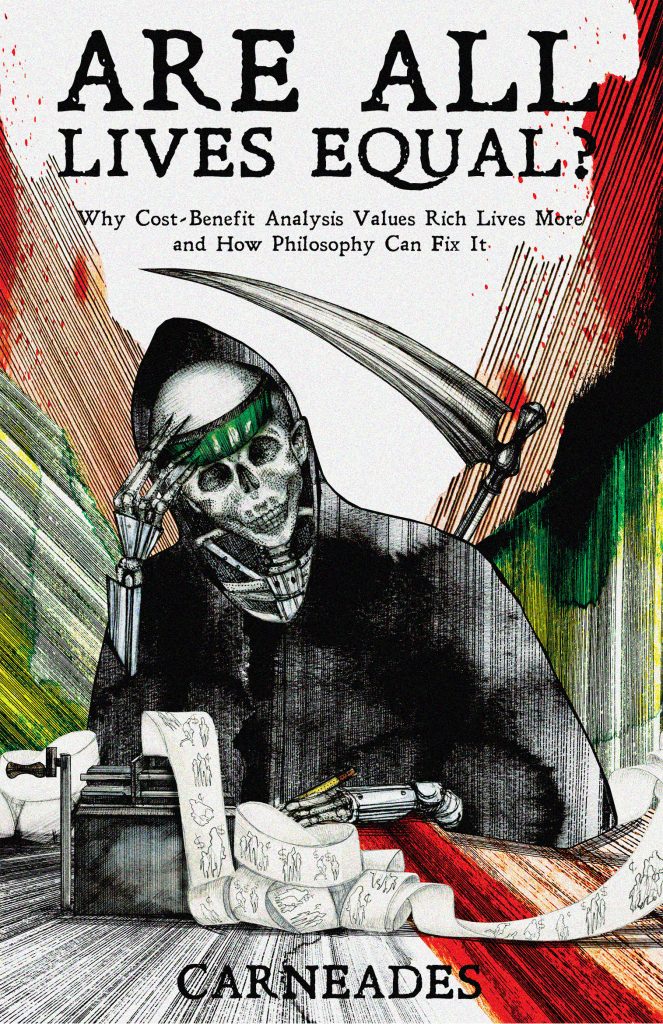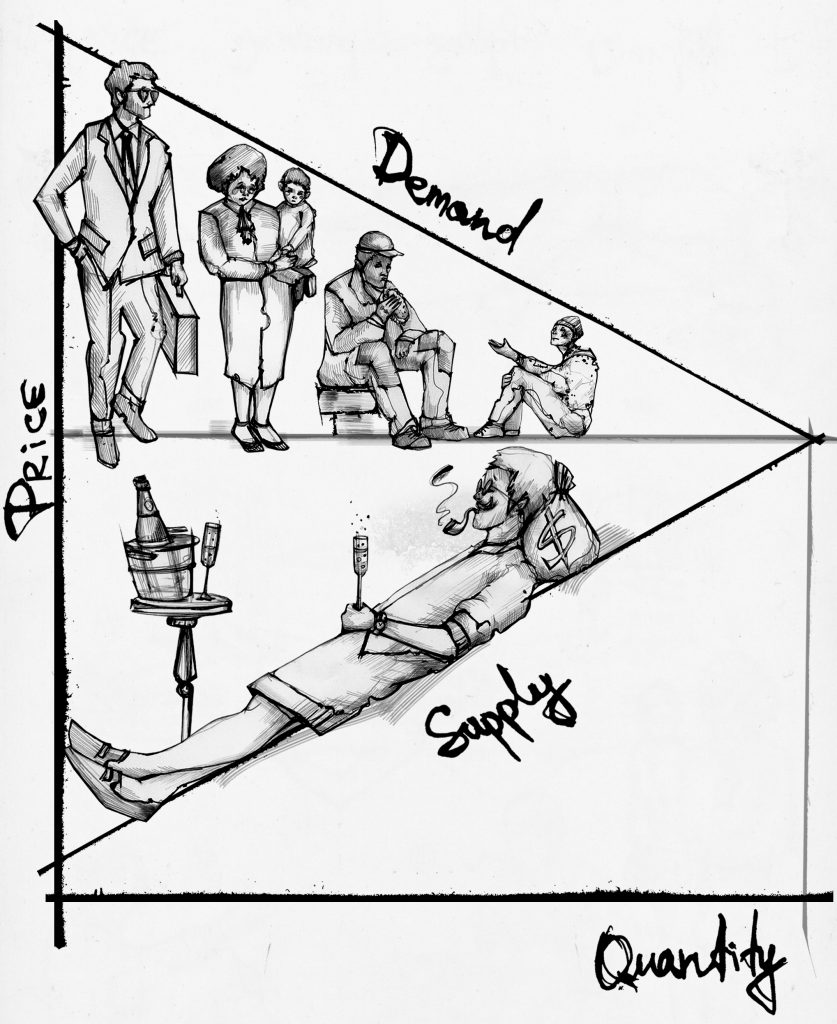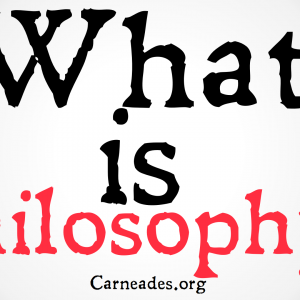
Are All Lives Equal?
A New Book From Carneades.org
According to economists, saving the life of a single American is just as beneficial to society as saving the lives of 2 Saudis, 5 Romanians, 10 Macedonians, 35 Indians, 69 Haitians, 90 Sierra Leoneans, or 148 Liberians. Why do economists think that, to judge if your life is worth saving, they must first check your pocketbook? Why do so many organizations, from the United States Government and the World Bank to the Gates Foundation and the United Nations (many of whom claim to hold the equality of life as sacrosanct) agree that when you check the numbers, rich lives are just worth more?
Are All Lives Equal? is a new book from Carneades.org that investigates how economics has come unbound from its philosophical and ethical foundations. It explores why economists support policy frameworks that would let hundreds of poor people die to save a single rich person. Unlike many philosophical treatises on economics, this book does not advocate blindly discarding the useful tools of Cost-Benefit Analysis and the Value of a Statistical Life. Instead, it strives to thread the needle between economics and philosophy, advocating for reforming the way governments measure benefit by making the system both more accurate and more just.
With over 40 new, original, thought experiments, this book is engaging and accessible to everyone, from economists that know nothing of philosophy, to philosophers that know nothing of economics, to all of us skeptics in between that know nothing of either.
How much is your life worth?
Data Visualization
Have you ever wondered how much your life is worth? Economists have. The good news is that, if you are an American, your life is very valuable, with the EPA setting the value of your life at around $7,400,000, though other estimates (such as the estimate used in the visualization below) place it higher, at closer to $9,600,000.
But, if you live somewhere else, your life is likely worth less, often much less. If you live in China, your life is worth a seventh of an American’s at only $1,364,000. If you are Nigerian, your life is worth even less, at only $485,000, a twentieth of the value of the life of an American. Lives in India are cheaper still at only $275,000, though these are still more valuable than the lives of the people of Burundi, valued only at $45,000, less than a new Tesla.
This visualization lets you see how much economists think the lives of people in other countries are worth. How many people you would need to save in order to get the same economic benefit from saving one American’s life? Check out our blog How Much Is Your Life Worth for more on these data and this visualization.
The Lie at the Heart of Economics
Economists fail to objectively measure value

Many people are worried about money in politics in the form of bribes and campaign donations, but what would you say if I told you that the very principles of economics require that economists privilege the preferences of the rich over the preferences of the poor, without anyone ever needing to pay a single dime? The basic assumptions of economics imply that people with more money have more ability to feel benefit and bear cost, and those with nothing don’t deserve to be counted. It is exactly these assumptions that we challenge in our new book, Are All Lives Equal? Why Cost-Benefit Analysis Values Rich Lives More And How Philosophy Can Fix It.
Even setting aside the concerns of the value of a statistical life, economists value the preferences of the rich more than the preferences of the poor. Your preferences are tracked using your willingness to pay, and your willingness to pay is bound by your ability to pay. The more you are willing to pay for a school or hospital in your community, the more the government is willing to spend on it. since the poor can pay less for one, a hospital for the poor is valued less, prioritized less, without the rich spending a single cent. Check out our blog post on the Lie at the Heart of Economics or buy the book to learn more.
Still Not Sure if You Want to Buy?
Read the first chapter of the book on Research Gate

